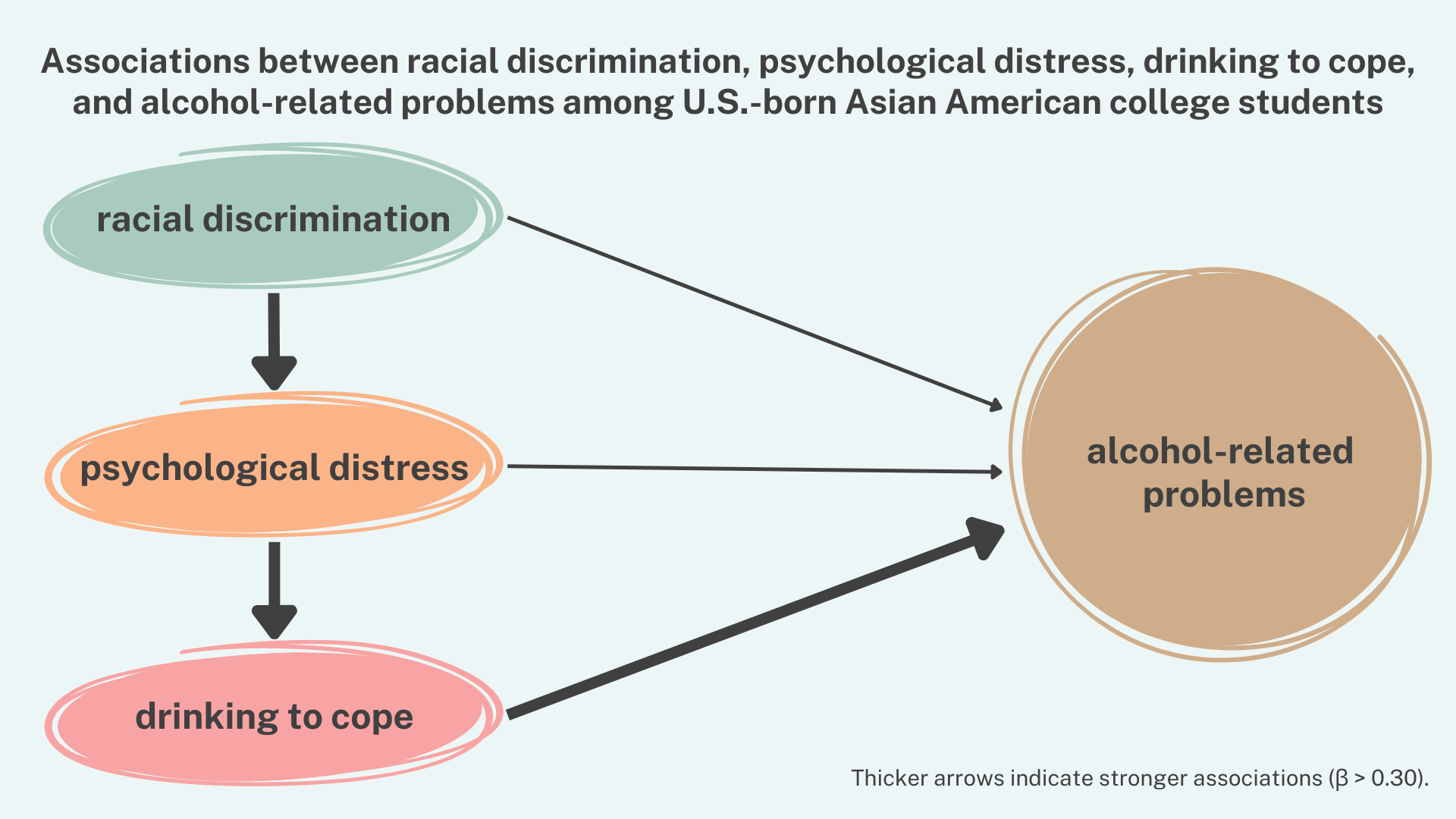Editor’s Note: Today’s review is part of our month-long Special Series on Asian American/Pacific Islander (AAPI) Addiction Research. Throughout May, The BASIS is examining forms of addiction among AAPI communities.
Rates of alcohol use, high-risk drinking, and alcohol use disorders are rising among Asian American young adults, with those born in the U.S. reporting greater alcohol consumption than those born in another country. Increased racial discrimination against Asian Americans may play a role, as previous studies have found positive associations between discrimination and drinking in other racial/ethnic minority groups. This week, as part of the Special Series on Asian American/Pacific Islander Addiction Research, The DRAM reviews a study by Derek Kenji Iwamoto and colleagues that investigated the relationships between racial discrimination, psychological distress, drinking to cope, and alcohol-related problems among Asian American college students.
What was the research question?
Among U.S.-born Asian American college students, what are the associations between racial discrimination, psychological distress, drinking to cope, and alcohol-related problems?
What did the researchers do?
Derek Iwamoto and colleagues asked 1,432 U.S.-born Asian American undergraduate students about their experiences with everyday racial discrimination, psychological distress, and drinking to cope. Students also self-reported their typical daily alcohol consumption and past-year alcohol-related problems. The researchers then analyzed relationships between these measures using structural equation modeling.
What did they find?
Every participant reported experiencing at least one incident of racial discrimination, with 59% reporting two or more incidents. The average score for psychological distress was within the clinical range for mild disorders, and 30% of scores indicated high risk for moderate to severe distress. Racial discrimination, psychological distress, and drinking to cope were all associated with alcohol-related problems (see Figure).

Figure. Associations between racial discrimination, psychological distress, drinking to cope, and alcohol-related problems among U.S.-born Asian American college students. Thicker arrows indicate stronger associations (β > 0.30). Click image to enlarge.
Why do these findings matter?
Among U.S.-born Asian American college students, experiences of racial discrimination can indirectly influence alcohol-related problems via increased psychological distress and drinking to cope motives. This suggests that racial discrimination, psychological distress, and drinking to cope are all risk factors for negative alcohol-related problems among this population. To reduce discrimination and improve mental health among students, college professors should consider using cooperative learning practices in the classroom. Outside of the classroom, college health education programs, such as peer health educators, should address culturally relevant barriers to seeking mental health care among Asian Americans.
Every study has limitations. What are the limitations in this study?
The term “Asian American” includes numerous ethnicities who each may have their own nuanced experiences related to racial discrimination, psychological distress, drinking to cope, and alcohol problems. Due to unequal sizes of ethnic subgroups in the sample, the researchers were unable to examine potential ethnic group differences. Academic majors, which were not included in analysis, may also play a role in drinking outcomes, as some majors are more stressful than others.
For more information:
The National Asian American Pacific Islander Mental Health Association (NAAPIMHA) emphasizes the important role that mental health plays in promoting positive health and well-being among Asian American, Native Hawaiian, and Pacific Islander communities. The National Institute on Alcohol Abuse and Alcoholism has tips and resources for people struggling with problem drinking. For additional drinking self-help tools, please visit our Addiction Resources page.
— Caitlyn Matykiewicz, MPH
What do you think? Please use the comment link below to provide feedback on this article.




